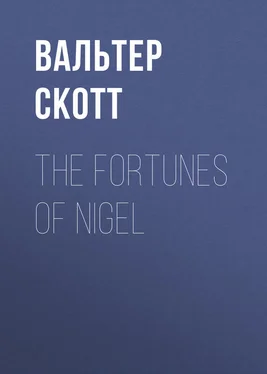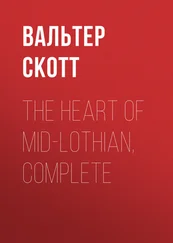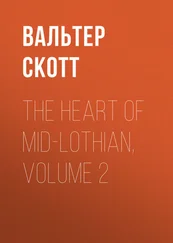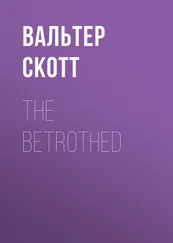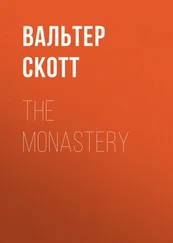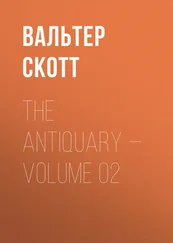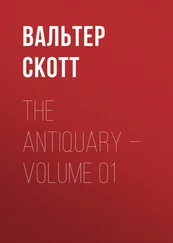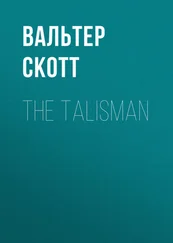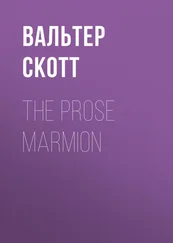Вальтер Скотт - The Fortunes of Nigel
Здесь есть возможность читать онлайн «Вальтер Скотт - The Fortunes of Nigel» — ознакомительный отрывок электронной книги совершенно бесплатно, а после прочтения отрывка купить полную версию. В некоторых случаях можно слушать аудио, скачать через торрент в формате fb2 и присутствует краткое содержание. Жанр: foreign_antique, foreign_prose, Альтернативная история, на английском языке. Описание произведения, (предисловие) а так же отзывы посетителей доступны на портале библиотеки ЛибКат.
- Название:The Fortunes of Nigel
- Автор:
- Жанр:
- Год:неизвестен
- ISBN:нет данных
- Рейтинг книги:4 / 5. Голосов: 1
-
Избранное:Добавить в избранное
- Отзывы:
-
Ваша оценка:
- 80
- 1
- 2
- 3
- 4
- 5
The Fortunes of Nigel: краткое содержание, описание и аннотация
Предлагаем к чтению аннотацию, описание, краткое содержание или предисловие (зависит от того, что написал сам автор книги «The Fortunes of Nigel»). Если вы не нашли необходимую информацию о книге — напишите в комментариях, мы постараемся отыскать её.
The Fortunes of Nigel — читать онлайн ознакомительный отрывок
Ниже представлен текст книги, разбитый по страницам. Система сохранения места последней прочитанной страницы, позволяет с удобством читать онлайн бесплатно книгу «The Fortunes of Nigel», без необходимости каждый раз заново искать на чём Вы остановились. Поставьте закладку, и сможете в любой момент перейти на страницу, на которой закончили чтение.
Интервал:
Закладка:
The king’s dress was of green velvet, quilted so full as to be dagger-proof – which gave him the appearance of clumsy and ungainly protuberance; while its being buttoned awry, communicated to his figure an air of distortion. Over his green doublet he wore a sad-coloured nightgown, out of the pocket of which peeped his hunting-horn. His high-crowned grey hat lay on the floor, covered with dust, but encircled by a carcanet of large balas rubies; and he wore a blue velvet nightcap, in the front of which was placed the plume of a heron, which had been struck down by a favourite hawk in some critical moment of the flight, in remembrance of which the king wore this highly honoured feather.
But such inconsistencies in dress and appointments were mere outward types of those which existed in the royal character, rendering it a subject of doubt amongst his contemporaries, and bequeathing it as a problem to future historians. He was deeply learned, without possessing useful knowledge; sagacious in many individual cases, without having real wisdom; fond of his power, and desirous to maintain and augment it, yet willing to resign the direction of that, and of himself, to the most unworthy favourites; a big and bold asserter of his rights in words, yet one who tamely saw them trampled on in deeds; a lover of negotiations, in which he was always outwitted; and one who feared war, where conquest might have been easy. He was fond of his dignity, while he was perpetually degrading it by undue familiarity; capable of much public labour, yet often neglecting it for the meanest amusement; a wit, though a pedant; and a scholar, though fond of the conversation of the ignorant and uneducated. Even his timidity of temper was not uniform; and there were moments of his life, and those critical, in which he showed the spirit of his ancestors. He was laborious in trifles, and a trifler where serious labour was required; devout in his sentiments, and yet too often profane in his language; just and beneficent by nature, he yet gave way to the iniquities and oppression of others. He was penurious respecting money which he had to give from his own hand, yet inconsiderately and unboundedly profuse of that which he did not see. In a word, those good qualities which displayed themselves in particular cases and occasions, were not of a nature sufficiently firm and comprehensive to regulate his general conduct; and, showing themselves as they occasionally did, only entitled James to the character bestowed on him by Sully – that he was the wisest fool in Christendom.
That the fortunes of this monarch might be as little of apiece as his character, he, certainly the least able of the Stewarts, succeeded peaceably to that kingdom, against the power of which his predecessors had, with so much difficulty, defended his native throne; and, lastly, although his reign appeared calculated to ensure to Great Britain that lasting tranquillity and internal peace which so much suited the king’s disposition, yet, during that very reign, were sown those seeds of dissension, which, like the teeth of the fabulous dragon, had their harvest in a bloody and universal civil war.
Such was the monarch, who, saluting Heriot by the name of Jingling Geordie, (for it was his well-known custom to give nicknames to all those with whom he was on terms of familiarity,) inquired what new clatter-traps he had brought with him, to cheat his lawful and native Prince out of his siller.
“God forbid, my liege,” said the citizen, “that I should have any such disloyal purpose. I did but bring a piece of plate to show to your most gracious Majesty, which, both for the subject and for the workmanship, I were loath to put into the hands of any subject until I knew your Majesty’s pleasure anent it.”
“Body o’ me, man, let’s see it, Heriot; though, by my saul, Steenie’s service o’ plate was sae dear a bargain, I had ‘maist pawned my word as a Royal King, to keep my ain gold and silver in future, and let you, Geordie, keep yours.”
“Respecting the Duke of Buckingham’s plate,” said the goldsmith, “your Majesty was pleased to direct that no expense should be spared, and – ”
“What signifies what I desired, man? when a wise man is with fules and bairns, he maun e’en play at the chucks. But you should have had mair sense and consideration than to gie Babie Charles and Steenie their ain gate; they wad hae floored the very rooms wi’ silver, and I wonder they didna.”
George Heriot bowed, and said no more. He knew his master too well to vindicate himself otherwise than by a distant allusion to his order; and James, with whom economy was only a transient and momentary twinge of conscience, became immediately afterwards desirous to see the piece of plate which the goldsmith proposed to exhibit, and dispatched Maxwell to bring it to his presence. In the meantime he demanded of the citizen whence he had procured it.
“From Italy, may it please your Majesty,” replied Heriot.
“It has naething in it tending to papistrie?” said the king, looking graver than his wont.
“Surely not, please your Majesty,” said Heriot; “I were not wise to bring any thing to your presence that had the mark of the beast.”
“You would be the mair beast yourself to do so,” said the king; “it is weel kend that I wrestled wi’ Dagon in my youth, and smote him on the groundsill of his own temple; a gude evidence that I should be in time called, however unworthy, the Defender of the Faith. – But here comes Maxwell, bending under his burden, like the Golden Ass of Apuleius.”
Heriot hastened to relieve the usher, and to place the embossed salver, for such it was, and of extraordinary dimensions, in a light favourable for his Majesty’s viewing the sculpture.
“Saul of my body, man,” said the king, “it is a curious piece, and, as I think, fit for a king’s chalmer; and the subject, as you say, Master George, vera adequate and beseeming – being, as I see, the judgment of Solomon – a prince in whose paths it weel becomes a’ leeving monarchs to walk with emulation.”
“But whose footsteps,” said Maxwell, “only one of them – if a subject may say so much – hath ever overtaken.”
“Haud your tongue for a fause fleeching loon!” said the king, but with a smile on his face that showed the flattery had done its part. “Look at the bonny piece of workmanship, and haud your clavering tongue. – And whase handiwork may it be, Geordie?”
“It was wrought, sir,” replied the goldsmith, “by the famous Florentine, Benvenuto Cellini, and designed for Francis the First of France; but I hope it will find a fitter master.”
“Francis of France!” said the king; “send Solomon, King of the Jews, to Francis of France! – Body of me, man, it would have kythed Cellini mad, had he never done ony thing else out of the gate. Francis! – why, he was a fighting fule, man, – a mere fighting fule, – got himsell ta’en at Pavia, like our ain David at Durham lang syne; – if they could hae sent him Solomon’s wit, and love of peace, and godliness, they wad hae dune him a better turn. But Solomon should sit in other gate company than Francis of France.”
“I trust that such will be his good fortune,” said Heriot.
“It is a curious and very artificial sculpture,” said the king, in continuation; “but yet, methinks, the carnifex, or executioner there, is brandishing his gully ower near the king’s face, seeing he is within reach of his weapon. I think less wisdom than Solomon’s wad have taught him that there was danger in edge-tools, and that he wad have bidden the smaik either sheath his shabble, or stand farther back.”
George Heriot endeavoured to alleviate this objection, by assuring the king that the vicinity betwixt Solomon and the executioner was nearer in appearance than in reality, and that the perspective should be allowed for.
Читать дальшеИнтервал:
Закладка:
Похожие книги на «The Fortunes of Nigel»
Представляем Вашему вниманию похожие книги на «The Fortunes of Nigel» списком для выбора. Мы отобрали схожую по названию и смыслу литературу в надежде предоставить читателям больше вариантов отыскать новые, интересные, ещё непрочитанные произведения.
Обсуждение, отзывы о книге «The Fortunes of Nigel» и просто собственные мнения читателей. Оставьте ваши комментарии, напишите, что Вы думаете о произведении, его смысле или главных героях. Укажите что конкретно понравилось, а что нет, и почему Вы так считаете.
